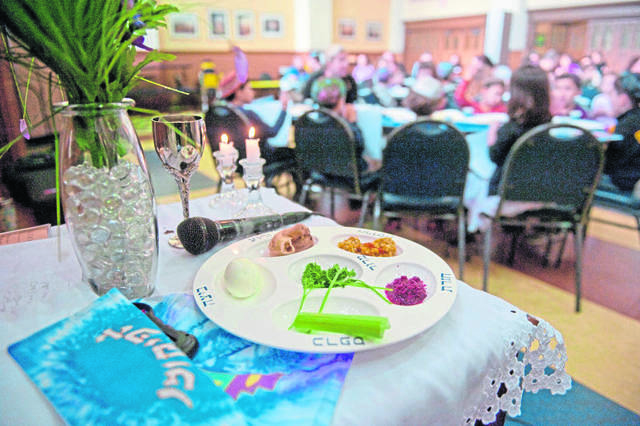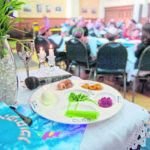Passover, one of the most widely celebrated Jewish holidays, begins at sundown Wednesday evening. And while the covid-19 crisis and stay-at-home orders will take some of the fun out of the occasion, Jewish faith leaders say it should be no less joyous.
“Judaism throughout history has always been a religion of adjustment,” said Rabbi Leonard Sarko of Congregation Emanu-El Israel in Greensburg. “We always seem to be getting roadblocks of one sort or another that force us to rethink what and how we do things.”
The centerpiece of Passover is the Seder which, as per biblical command, is held after nightfall on the first night of Passover. The Seder is a feast that includes eating special foods, drinking wine, telling stories, singing and other traditions. It’s a time when extended family and friends often gather together.
That won’t be possible this year.
Nevertheless, Sarko said he can’t think of anybody within his congregation who isn’t doing some sort of a Seder — and almost all of them are doing virtual Seders.
“They’re getting together with family and friends online with video conferencing where they can talk,” he said. “I can’t think of anybody in our congregation that isn’t connected in some way to a Seder that will be done in the virtual world.”
The tamped-down celebrations will undoubtedly be a disappointment for some, but Jews everywhere are being urged to keep things in historical perspective.
“Certainly Jews have seen much harder times,” said Rabbi Danny Schiff, foundation scholar at the Jewish Federation of Greater Pittsburgh. “I was teaching a pre-Seder preparation session online last week and I said to them, ‘If it was possible for Jews to put together a Seder in Auschwitz as they did, if it was possible for Menachem Begin in a Soviet prison to put together a Seder with his one fellow Jewish inmate, then it’s possible for us to put together a Seder in circumstances that are considerably less onerous.’ ”
While many members of the Jewish faith will be relying on their devices to celebrate Passover this year, the use of technology during the eight-day holiday is something Orthodox rabbis are discouraging. But Sarko, a Reform rabbi, said exceptions should be made for people who are alone for the holiday.
“In Judaism, life takes precedence over everything. And I would consider a person who’s in an assisted living facility, and can’t get out and can’t have people coming in. To me that’s a matter of life and death,” Sarko said. “It’s so important to continue to be with community. And so to use the tools that we have today gives us a way to maintain and practice our Judaism. So why not?”
For his part, Schiff said Orthodox rabbis have a point and that technology, in this case, is both a blessing and a curse.
“It provides us with an opportunity to be together from far away,” said Schiff. “But sometimes it can also get in the way of really concentrating on the power of what the smaller group of human beings, with whom we share our home, brings to the experience. However, we ought to utilize technology for those people who are alone and whose psychological vulnerability might be a factor.”
Schiff said even with this year’s covid-19 restrictions, there are still opportunities to celebrate the holiday in meaningful ways.
“The Passover message is really all about getting out of Egypt, escaping slavery, bringing to an end more than two centuries of darkness and suffering, and celebrating a new dawn,” said Schiff.
“So, given that context, at least the hope here is that at some point we will get past this time of difficulty and restriction and come to a place where we will be able to be together again and celebrate more broadly.”











